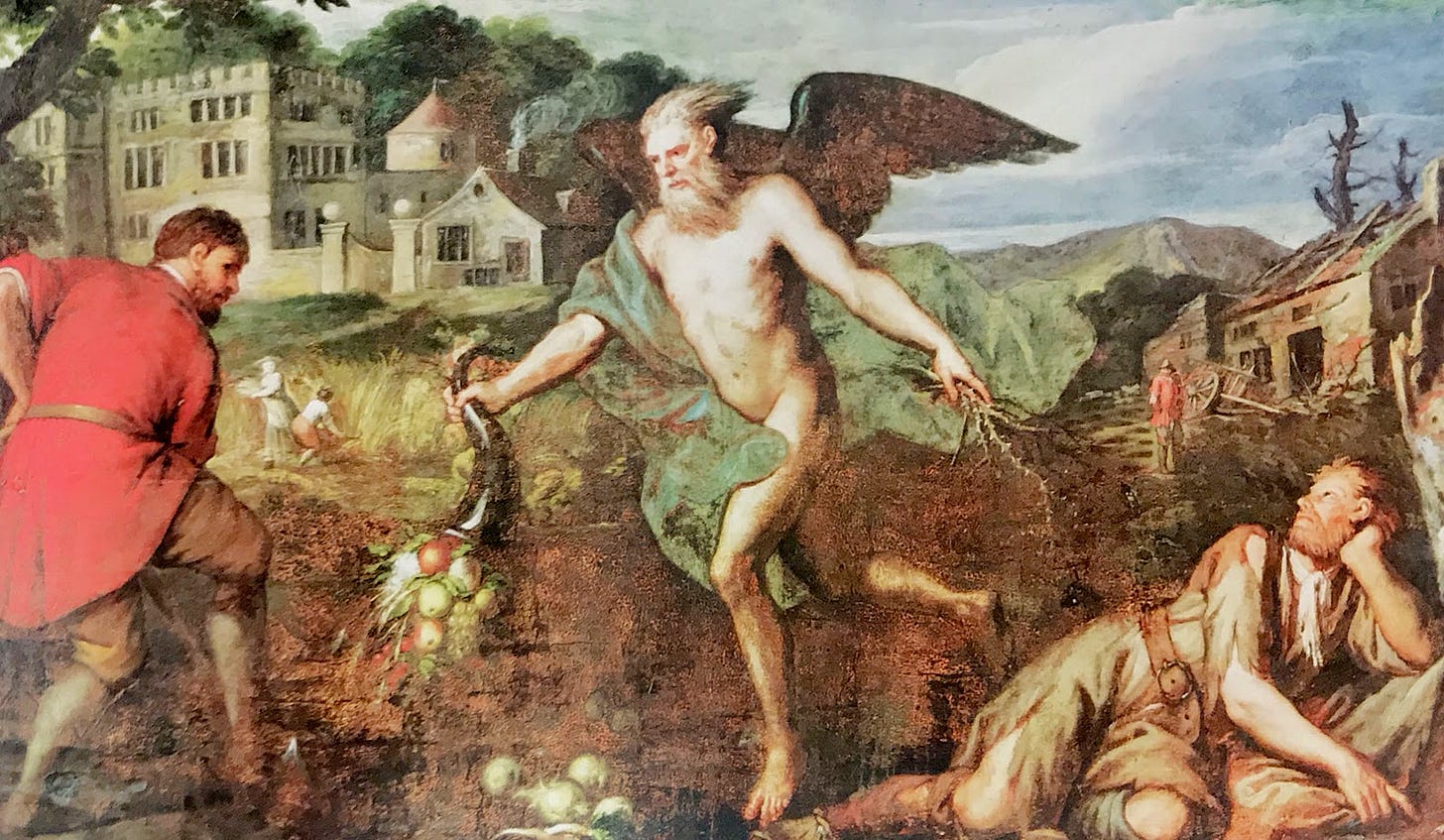Laboring Under a False Impression
AI is requiring us to take a new look at finding purpose in our work
“Toil is man’s allotment; toil of brain, or toil of hands, or a grief that’s more than either, the grief and sin of idleness.” —Herman Melville, 1849
Here in the United States we just celebrated Labor Day — the unofficial end of summer, one last chance to put your toes in the sand, enjoy a lazy cookout, or just fudgel about before heading back to work or school.
Our society teaches us that to work — particularly to work with a purpose — is to live. The infamous sign over the gates at Auschwitz read Arbeit macht frei (“Work sets you free”), but was a cruel joke, told at the expense of over 1 million souls that perished there.
The phrase came from the title of an 1873 novel by Lorenz Diefenbach, in which gamblers and fraudsters found the path to virtue through labor.
So labor is a virtue.
It would then follow that the opposite — idleness — would be a vice.
Sven Birkerts, editor of AGNI, diffuses the negativity related to idleness in “The Mother of Possibility” in Lapham’s Quarterly:
“Idleness has been branded the obverse of industry, a slap in the face to all healthy ambition. So-and-so is a layabout, a ne’er-do-well, an idler. But for all that, we have not made the word unbeautiful; there is a light at the core, to be remarked, gleaned from the righteous attributions of the anxiously busy…It is the soul’s first habitat, the original self ambushed—cross-sectioned—in its state of nature, before it has been stirred to make a plan, to direct itself toward something. We open our eyes in the morning and for an instant—more if we indulge ourselves—we are completely idle, ourselves. And then we launch toward purpose.”
More on purpose in a moment.
Currently, there are a number of labor-related strikes happening or in the works: the WGA is more than 100 days into its strike (joined in July by SAG-AFTRA), the Culinary Workers Union rallied in Las Vegas last month, and the UAW voted to authorize a walkout if they don’t reach a deal with U.S. automakers by September 14.

While these workers may be idle from their jobs, they are far from idle in pursuing their purpose.
“I believe in the dignity of labor, whether with head or hand; that the world owes every man an opportunity to make a living.” — John D. Rockefeller Jr., 1941
The Dignity of Labor
A number of those unions are concerned — afraid, even — of the world of their jobs in the face of advances in A.I.
The writers and actors don’t want their creations and likenesses to be gobbled up and replaced by machines; they want fair compensation in a world in which bits and bytes have replaced typewriter ribbon and celluloid film.
The auto workers know that fewer parts in increasingly electrified vehicles and more robot assembly line stations mean fewer hours to work; they want fair compensation.
This isn’t a new conflict. History teaches us that there are a number of times in our nation’s past when we’ve had to deal with similar struggles.
For a good history of what happened in the 1880s amid the first Labor Day, see Heather Cox Richardson’s latest, in which she quoted President Grover Cleveland:
“The gulf between employers and the employed is constantly widening, and classes are rapidly forming, one comprising the very rich and powerful, while in another are found the toiling poor…. Corporations, which should be the carefully restrained creatures of the law and the servants of the people, are fast becoming the people’s masters.”
The gulf in the 1880s was largely a result of the Industrial Revolution. And it would continue another 20 years into Theodore Roosevelt’s time.
In 1902, the great Coal Strike paralyzed the company. In his Autobiography, Roosevelt recalls what precipitated it:
“It showed clearly to all wise and far-seeing men that the labor problem in this country had entered upon a new phase. Industry had grown. Great financial corporations, doing a nation-wide and even a world-wide business, had taken the place of the smaller concerns of an earlier time. The old familiar, intimate relations between employer and employee were passing.”
From Hands to Brains
The Industrial Age has passed, giving way to the Information Age, when we have become a society that relies less on hands and more on brains.
Yet we still require the outputs of physical labor via manufacturing: our phones, our houses, and our transportation, despite encroaching automation, still require human hands to touch them, somewhere in the chain.
And those hands, tethered to an assembly line or a keyboard, serve a purpose, whether our own or someone else’s.
This is a fundamental drive of human existence: to live for a purpose.
Simone Weil recognized the importance of purpose in work: that it links us to being part of something greater than ourselves.
Knowing that we’re contributing to society in some tangible or meaningful way can help us deal with the hardships that may accompany our work.
Fundamentally, if someone has a job, it imbues them with purpose and gives them that dignity that Rockefeller talked about.
Bulls**t Jobs
But as A.I. continues to creep in, we’ve been told that it will replace jobs. Not every job, of course, but many and particularly the kind that anthropologist David Graber in 2013 called “ Bulls**t Jobs”:






